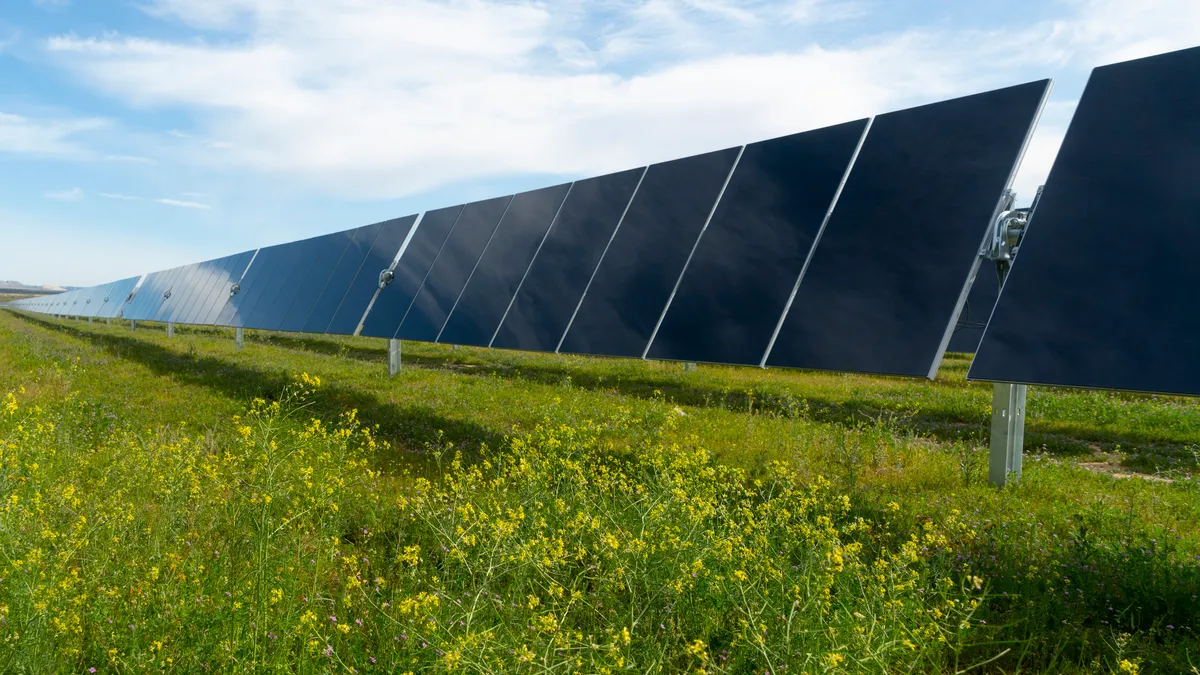Dive Brief:
- Hawaiian Electric Co. (HECO) says it is “disappointing” that ENGIE North America exited a planned solar and storage project over supply chain issues, but the utility does not expect other projects to be canceled.
- French energy company ENGIE was awarded the Puako solar and storage project in May 2020 and had contracted battery provider New Horizons Ahead (NHOA) to supply a 240-MWh battery storage system and act as a system integrator.
- In a statement, NHOA said it had been informed by ENGIE that it was abandoning the project due to high interconnection costs, global supply chain issues and trade disputes affecting the photovoltaic solar industry. NHOA said it is “obviously disappointed” with the decision and added that “the production issues mentioned by ENGIE are in no way related to NHOA’s technology nor scope of supply.”
Dive Insight:
HECO has worked to become a leader in solar and storage deployments as part of a goal to generate 100% renewable energy by 2045. The original Puako project was part of a 16-project procurement announced last year that totaled 460 MW of solar and nearly three GWh of storage. Last month, the utility announced a request for proposals for renewable energy projects on Hawaii Island, which it says should be paired with storage. According to a project status board, 15 renewable projects have been approved by regulators and are set to be completed in the next two years, with another four awaiting regulatory approval.
“It’s obviously disappointing when projects like Puako Solar drop out, but there are many other projects moving toward completion,” said HECO senior communications consultant Kristen Okinaka. She added that other developers have said supply chain issues may cause delays, “but none have canceled.”
The ENGIE project would have been a 25-year power purchase agreement for a 60-MWac solar generating project and 240-MWh battery energy storage system.
Experts have cautioned that the global supply chain crisis — which has slowed down nearly all manufacturing and commercial sectors — could stem some storage development. In an October report, IHS Markit said that cell manufacturers, already facing supply issues, could prioritize electric vehicle clients “over relatively small energy storage system integrators,” although it still projected installations to grow. A Guidehouse Insights report also identified possible issues in acquiring raw materials as a reason manufacturers are diversifying their battery chemistries and the materials they use.
Companies like Tesla have warned that the supply chain is impacting their ability to deliver storage batteries.
ENGIE has not detailed what issues led to the decision to exit the Puako. In 2020, the company added nearly 2 GW of renewable energy in U.S. projects, part of a plan to deliver 9 GW of renewable capacity between 2019 and 2021.
The project’s cancellation also comes as solar companies are warning the Biden administration that potential tariffs on solar panels and cells imported from Asian countries could cripple the industry. The Commerce Department has been considering opening an investigation into whether Chinese manufacturers are dodging tariffs by moving production to other countries, which could result in tariffs on products from Malaysia, Vietnam and Thailand. Those three countries account for 80% of U.S. imports, according to a letter from the Solar Energy Industries Association.













